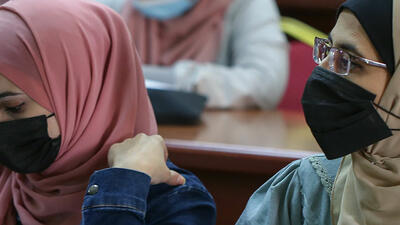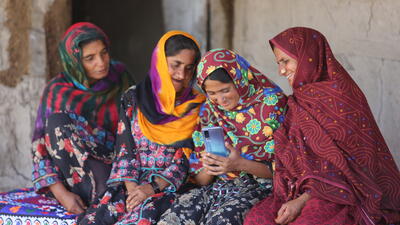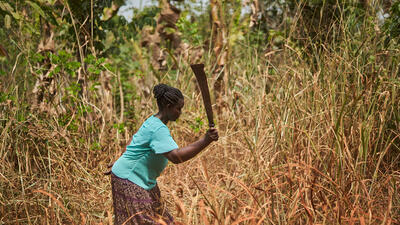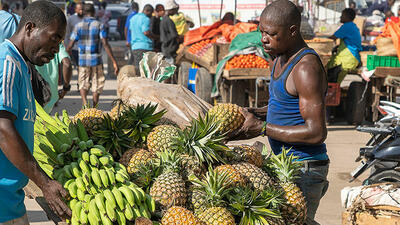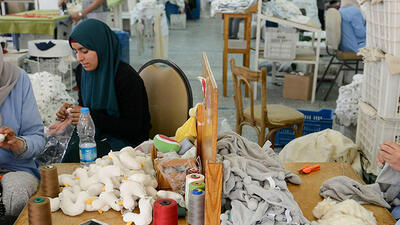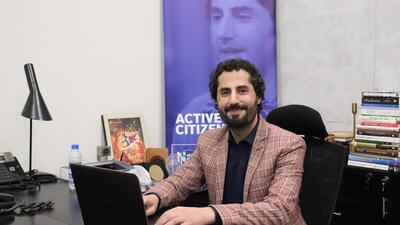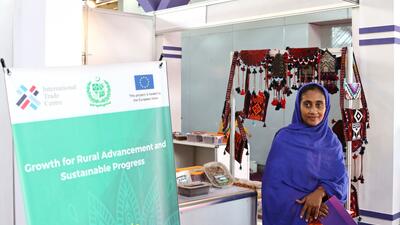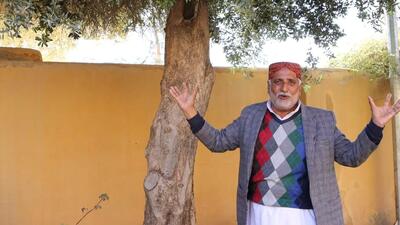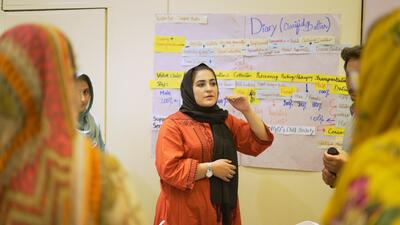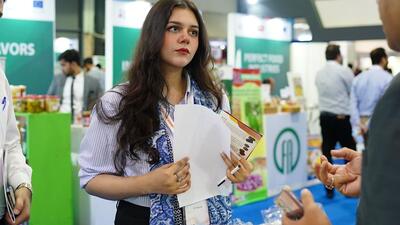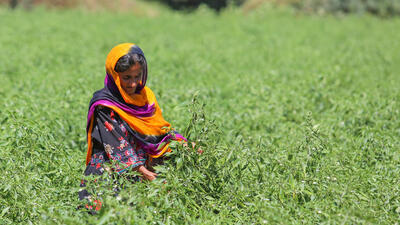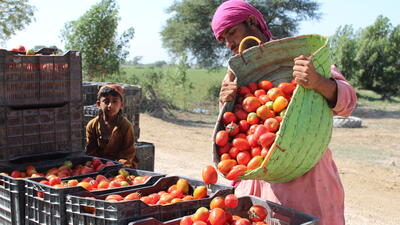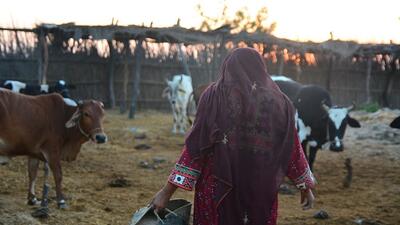
Cluster of financial institutions in Pakistan lift rural farming business
The Pakistan Poverty Alleviation Fund and ITC offer financing solutions paired with training for the most remote small businesses and farmers in rural Pakistan as they struggle to get back on their feet after the pandemic.
The International Trade Centre recognizes that ‘Partnerships4Purpose’ can contribute to impactful projects and sustainable outcomes. To celebrate the teamwork behind these efforts, ITC is proud to highlight game-changing initiatives that are made possible through strong and meaningful collaboration.
Under its EU-funded Growth for Rural Advancement and Sustainable Progress (GRASP) project in Pakistan, the International Trade Centre (ITC) and the Pakistan Poverty Alleviation Fund provide access to finance for the most remote small businesses and farmers in the rural provinces of Sindh and Balochistan.
ITC surveys show that over 90% of small businesses in these provinces are not formally registered. Despite “running” their business operations, they do not have access to information or to bigger markets, as well as face limited financing options to expand. Moreover, while oftentimes the produce is of good quality or organic, lacking business expertise limits their market access and selling their produce at a higher price.
This is amplified for women business owners and farmers: in the village of Allah Dino, UC Moolan in Sindh, women were even hesitant to declaring their involvement in their husbands’ businesses, or that they reared livestock and sold by-products such as ghee and butter.
The unique approach: Grants combined with training
To tackle these challenges and provide better support to these farmers, ITC has brought on board 21 financial institutions in Pakistan, including some of the country’s leading banks. The collaboration offers matching grants to small horticulture or livestock businesses in all 24 districts of Sindh and Balochistan.
By going into villages and meeting with the communities, the GRASP project teams advertise the grants, guiding applicants on how to fill out forms and explaining how their business could improve with additional resources.
Recognizing the need for formal education, ITC also trains the small business on topics such as business management, techniques in livestock management next to developing biproducts for selected value chains in their regions. So, when they do apply for grants, they have a business plan, and are aware of how to use these funds to get their enterprise to the next level.
The impact: Smart investments for thousands of business owners
So far, the Pakistan Poverty Alleviation Fund has received 4,000 applications for the grants. In addition, business owners have demonstrated plans on expanding their operations by opening digital accounts, investing in better technology for sustainable interventions, as well as purchase climate-resilient seeds to improve their economic activity.
The grant component has two sides: on the one hand it sensitizes people to think about enhancing their income. On the other hand, the training can be used to access finance from other institutions. The number of women applicants is also a sign that in the less developed areas this component may trigger an inclusive development process.
Moving forward: Unity for greater impact
The Pakistan Poverty Alleviation Fund and GRASP are planning for more grant cycles soon, thereby taking into consideration lessons learned, which are instrumental for mid-course corrections and in making the project more effective, inclusive, and sustainable. Transparency embedded in the procedure – from invitation of applications, selection, and disbursement – is the pivotal sustainable factor in strengthening the collaboration among all partners and applicants.
Ultimately, the partnership is breaking down technical financial information into simple language and opens the gates of financial access to a large demographic which needs it the most but has no access to it. Farmers who were running their businesses unguided and in isolation, are now exchanging information, coming together to make business plans, and most importantly, hoping and visualizing a future for their businesses beyond a way to simply make ends meet.





